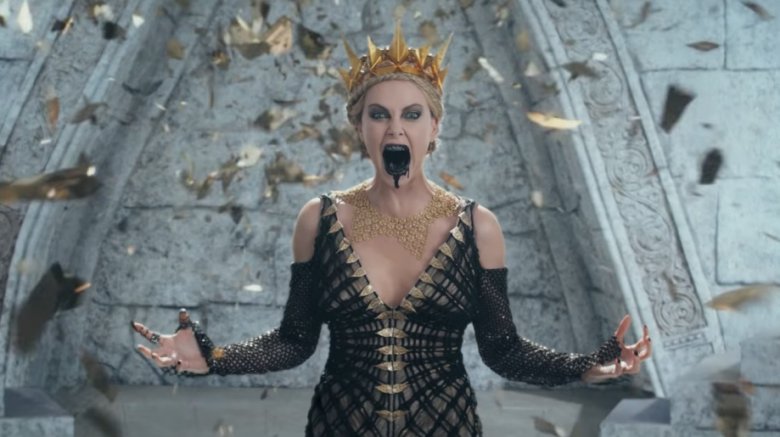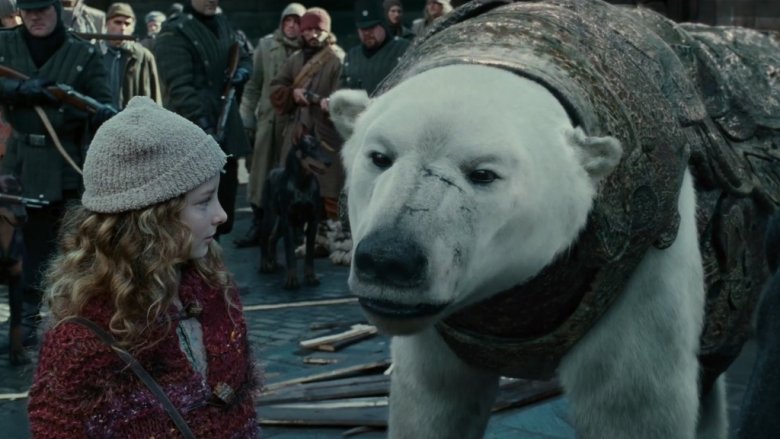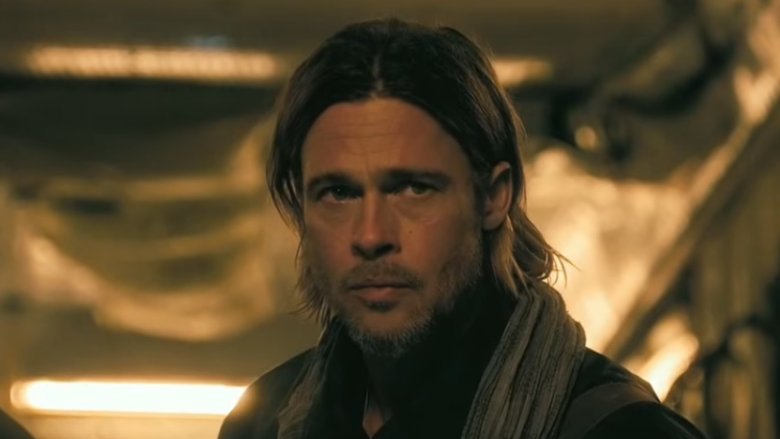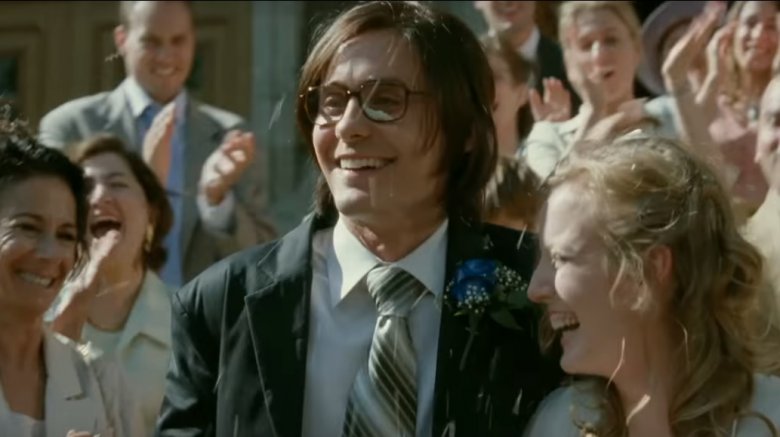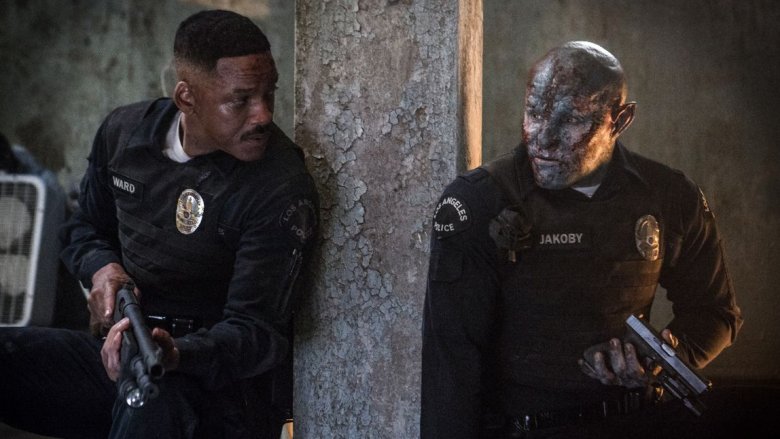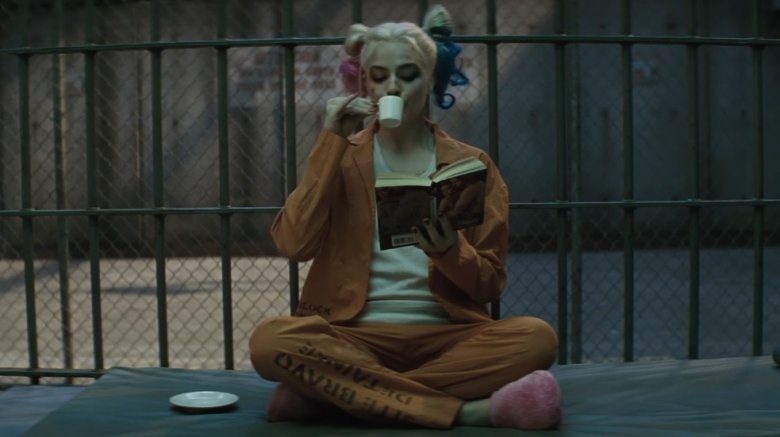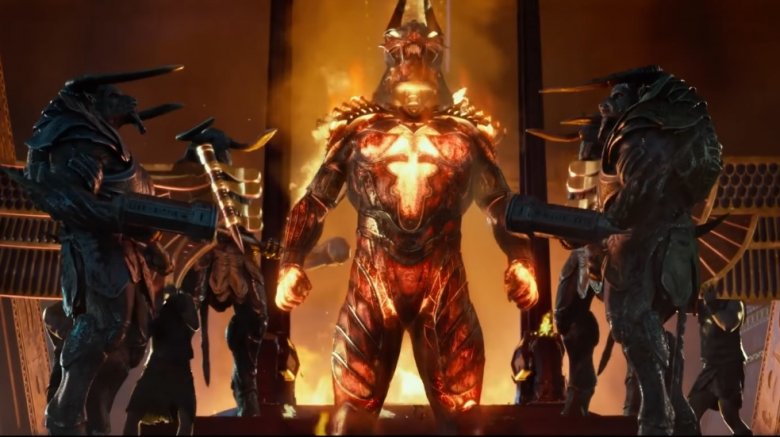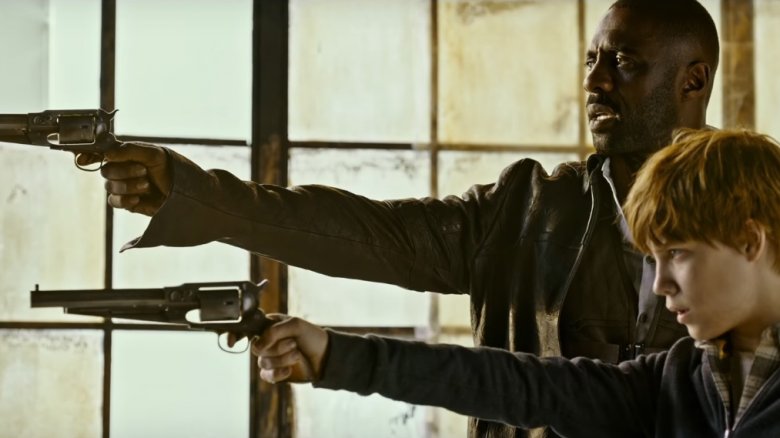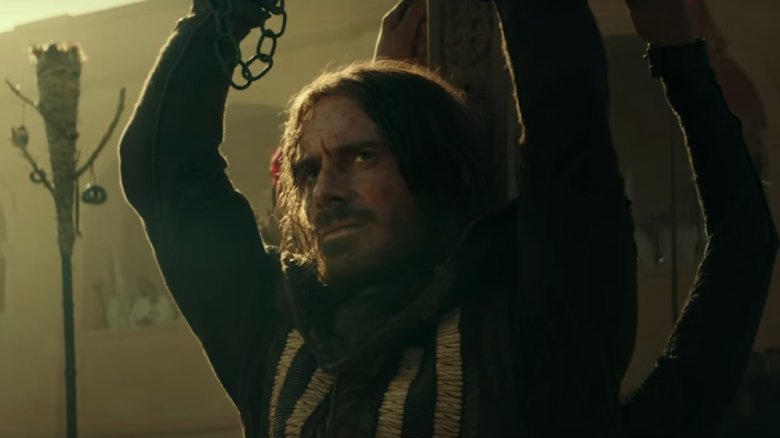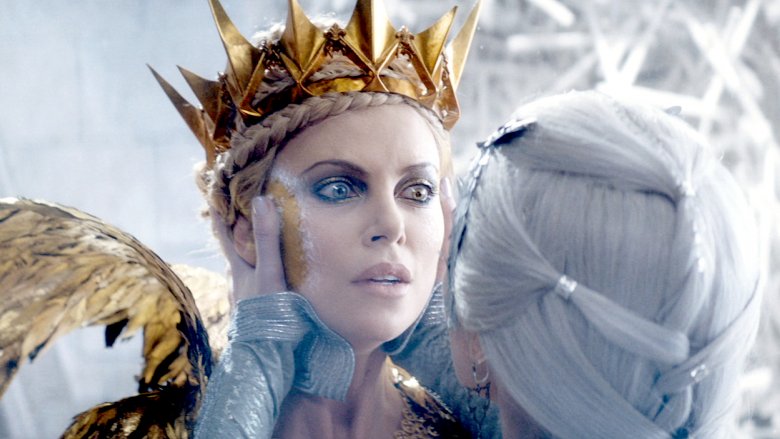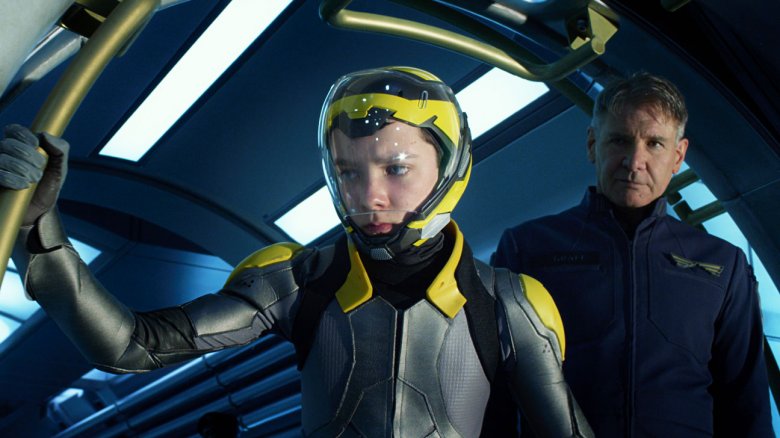Movies That Should Have Been TV Shows Instead
Just because a movie is built for the big screen doesn't necessarily mean it's best suited for it. Countless adaptations of novels have cut major content to fit within two hours — or worse, omitted key thematic elements in order for studios to feel like they had a mass-marketable product. Then there are the overcrowded superhero ensemble flicks that cram in way too many characters just to match their comic book source material.
However, a lot of the issues these inherently flawed films share can all be remedied by one simple solution: TV. It's the format of the future, loyal readers, and this list is here to spell out why. Read on as we look back on some would-be blockbuster movies that would have fared far better as television shows.
The Golden Compass
The Golden Compass is a prime example of what happens when a studio tries to simultaneously do too much and too little with an adaptation of a novel. On one hand, the film ham-fistedly inserted way too much exposition from the first book (while still omitting tons of vital info), but at the same time, said adaptation also excluded almost all of the novel's philosophical and religious content.
That latter problem was presumably an issue because New Line didn't want to gamble $180 million on a polarizing, theology-infused blockbuster. A lower-risk endeavor like a TV series, however, might've stood a better chance at being allowed to retain the book's sophisticated material. It would've undoubtedly covered the story at a more accommodating pace. And, with three novels total in the series, there'd be ample opportunity for multiple seasons of adapted material.
World War Z
While the movie was a modest critical success and fared well commercially, World War Z's film adaptation could've been so much more...if only it had been a TV show instead.
Seriously, as fun as it was to watch Brad Pitt smash zombies' brains in, imagine what could've been if it'd gotten the TV treatment. The book, for frame of reference, operated as a journalist's retelling of various peoples' stories during the global zombie outbreak, and each chapter was (more or less) its own unique story that took place in a separate corner of the globe with a fresh cast of characters. This setup all but begs for an anthology-style TV adaptation. Imagine one episode starring an all-Chinese cast knocking zombies off the Great Wall, followed by an episode that featured fishermen fending off zombies atop boats surrounding the Caribbean islands. The narrative potential would've been limitless.
Not only would this TV anthology route have opened up the door for infinite seasons' worth of pulse-pounding adventures, but it also would've been far more faithful to the book. Basically, a TV adaptation of World War Z might've been the impossibly rare one-in-a-million strategy that pleased everyone. Alas.
Mr. Nobody
Mr. Nobody is, at its core, a story about one man remembering his life and imagining the many alternate routes it could've taken. While the premise is straightforward enough, the film fails to actualize it in a way that's even remotely orderly. Mr. Nobody tangles its many plots together in a jumble of barely connected story threads, all of which are so thinly linked that its barebones structure makes the overarching narrative virtually incomprehensible. This deliberately confusing design obfuscates the story as well as the thematic subtexts at the adventure's emotional core.
Had Mr. Nobody been developed as a TV show, these structural problems would cease to exist. Each episode could focus on one timeline, with the various episodes slowly connecting across tens of hours' worth of programming. Television would've given Mr. Nobody all the time in the world to convey its loaded, content-rich story in an intelligible, coherent manner.
Bright
All right, we'll be the ones to say it: Bright, the fan-loved and critic-hated Netflix-original buddy-cop action movie, might have worked better as a TV show. Hear us out on this one.
Bright was an important milestone for Netflix on their journey toward Hollywood-style film development, but this particular story idea might not have been the best contender for the job. Critics hated Bright because it had way too much heavy-handed social commentary awkwardly mashed up with underdeveloped fantasy lore, all crammed into two hours. This lack of nuance could've been easily remedied if Bright had the luxury of multiple episodes to tell its tale.
Sure, Bright would become just another Netflix original TV show at that point, but is that such a bad thing when it'd be situated alongside a catalog of A-list hits such as House of Cards and Stranger Things? Rather than ending up as a critically panned movie, Bright could've been a television show instead — and a very, very well-received and supremely original buddy-cop drama-sitcom at that.
Suicide Squad
Given how few CGI-intensive scenes there were in Suicide Squad and how critically panned the movie turned out to be, it might've been both feasible and beneficial for Warner Bros. to have made this property into a TV show rather than a movie. Seriously, think about it: minus the expensive A-list actors, nothing about Suicide Squad couldn't have been scaled down and done on a TV show's budget. Furthermore, a show with tons of episodes and seasons would've allowed the members of the squad more time to become fleshed out, three-dimensional characters. Had Suicide Squad gotten the TV treatment, Slipknot could've been more than a plot device with just two minutes of screen time.
Even better, a Suicide Squad series also means the squad would've gotten to be a part of the DC TV universe. Can you imagine Grant Gustin's Flash or Stephen Amell's Green Arrow going toe-to-toe with the likes of Joker, Harley Quinn and Deadshot? It could've been incredible — sadly, this conceptually superior TV adaptation will never see the light of day as long as Warner Bros. stays committed to keeping the squad on the big screen.
Gods of Egypt
Gods of Egypt almost entirely failed to capitalize on its rich potential, settling for underdeveloped characters, hollowed-out action sequences, messy plot contrivances, bad CGI, and sloppy editing. However, the foundations of a great idea were always present: the ancient Egypt setting, the idea of mixing gods and men, the likable character archetypes and limitless opportunities for imaginative action and spectacle — all of these ingredients could've resulted in something amazing, if Gods of Egypt had been a TV show instead of a movie.
One hundred percent of the aforementioned issues would be easily fixed by giving Gods of Egypt the premium television treatment, à la Game of Thrones. Characters would have more time to develop, and action sequences could be fleshed out. Plot conveniences would be rendered unnecessary thanks to additional storytelling time, and sparingly-used CGI would likely receive far more polish as a result of mixing a TV-sized budget with big-screen ambition. And as for the choppy editing? There wouldn't be any, since the two-hour time limit that necessitated it in the first place would cease to exist.
In short, Gods of Egypt was, and is, a great idea that just got plopped into the wrong format. With that said, we're betting there's still ample demand for something like this — something like an Egyptian Game of Thrones. Get on it, HBO!
The Dark Tower
This movie was doomed to fail. The four (yes, four) screenwriters' joint idea to try and pack Stephen King's vast bestselling saga into one two-hour movie was a hopeless endeavor. And by the time the theatrical release came out, the movie didn't even get two hours to tell its story — it was ninety-five minutes long. A hair over an hour-and-a-half to deliver a fully fleshed out hybrid adaptation of one of King's weirdest and most complex series? Don't worry, reader, we're groaning right alongside you.
It's obvious why The Dark Tower would have fared better as a TV show. It would've afforded the narrative more time to grow and develop, easing viewers into the world before slamming them with big action and plot developments. Considering there are eight books in the series, the show could've had a healthily long run, to boot.
Though we speak as though hope for a TV adaptation is lost, do keep in mind that a few creative minds in Hollywood are still working on just that. Give them a few years and maybe we'll have the Dark Tower small-screen experience we deserve.
Assassin's Creed
Assassin's Creed's storytelling is complex stuff. There's a modern-day story, a historical adventure that changes time periods with each installment, and even a secretive "precursor race" narrative that operates independently of the aforementioned plots.
The games get the balance of these threads right. Each entry uses the modern-day segments as narrative bookends, the historical adventure as the meat of the story, and the precursor stuff as deep lore mostly hidden away inside collectibles.
Sadly, the movie didn't do this narrative setup justice — nor could it have. Video games tell stories that stretch dozens of hours long. Movies have to condense that down to two hours, which is why the Assassin's Creed film omitted the precursor stuff entirely and minimized the historical aspect (a.k.a AC's biggest selling point) just so it'd have time to explain the series' basic modern-day setup.
An Assassin's Creed TV show wouldn't have needed these shortcuts. The pilot could break down the precursor and historical content, setting up a series backdrop while ending the episode with an introduction to the modern-day protagonist(s). From there, episodes could be treated like the games, with each sporting a prologue and epilogue centered on the modern-day story while the historical adventure takes up the bulk of the runtime, with a thin trail of precursor teases underpinning a season-spanning secondary narrative. This TV approach would have achieved the movie's primary goal of attracting new fans without sacrificing the fun of the series itself.
The Huntsman: Winter's War
While The Huntsman: Winter's War was smart to cash in on Disney's Frozen hype by utilizing it for their own darker take on the ice queen's story, the reality is that this movie was a glaring instance of squandered potential. The Huntsman: Winter's War didn't have to settle for being an uncalled for, unwanted sequel to a gritty Snow White remake. It could've been an adult-oriented, grim version of Once Upon a Time and capitalized on a niche that's only somewhat saturated by shows like Game of Thrones. There's virtually endless fantasy lore to draw from in western mythology, so why settle for a one-and-done sequel when this film's plot could've been used just as easily for a spinoff series' premiere? Picture it as Once Upon a Time with Game of Thrones' budget and tone. How cool would that be? There are definitely big audiences for both of those properties, so we can only imagine the hype that could surround a series angled as a hybrid of the two.
Ender's Game
Ender's Game is a novel that covers a large portion of titular character Ender Wiggins' life, with the biggest chunk of the book depicting his early years between the ages of six and ten. Even excluding the novel's epilogue, which ventures many years past where the main story ends, four years' worth of character growth is still a lot of time to cover inside a two-hour film adaptation. While the movie does an admirable job of capturing Ender's strides toward adulthood, there's no sense of time. The movie condenses events so it feels like they're all happening within a few months of each other rather than years, and Asa Butterfield's un-aging portrayal of Ender Wiggin only exacerbates this issue.
A TV series would've afforded a special opportunity for Ender's actor to grow into his role, resulting in real aging across years of onscreen storytelling. TV would've also allowed for the story to be expanded, filling in gaps the movie never even took a stab at while also elaborating on plot points the novel itself only alluded to. Furthermore, a TV show would've provided room for adaptations of the other books in Ender's saga. These would've needed to be spinoffs with different actors because of Ender's substantial age difference between books, but hey, at least we'd get to see what happens after Ender's Game. Given the film adaptation's low return on investments at the box office, we'll likely never see the novel's sequels brought to life on the big screen. However, a lower-risk TV series might've afforded us that opportunity.
